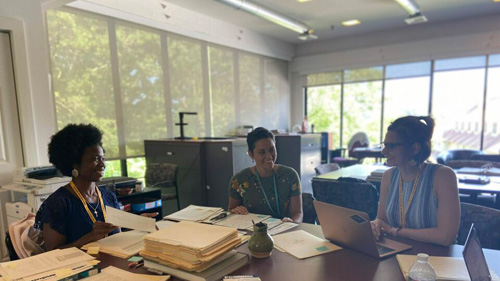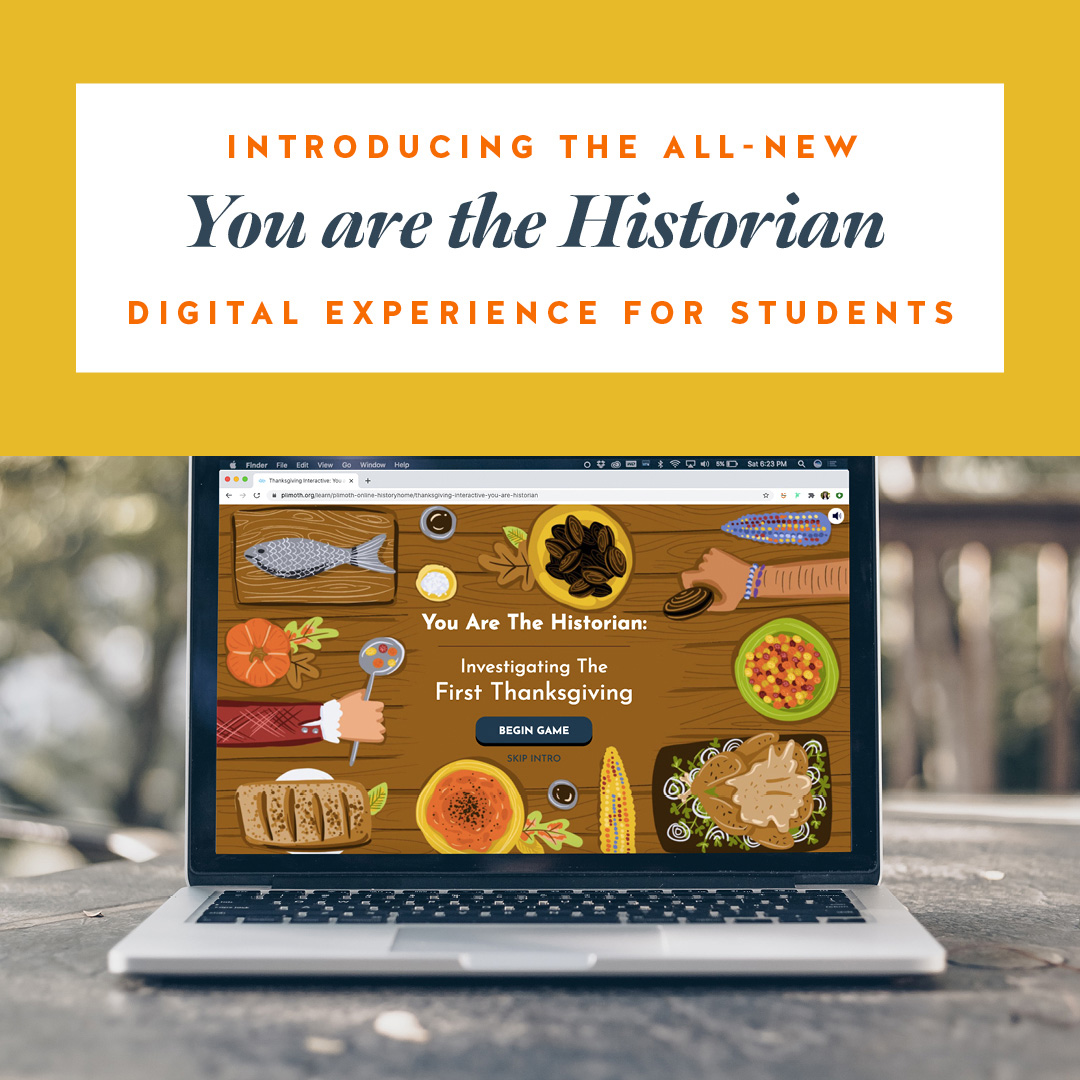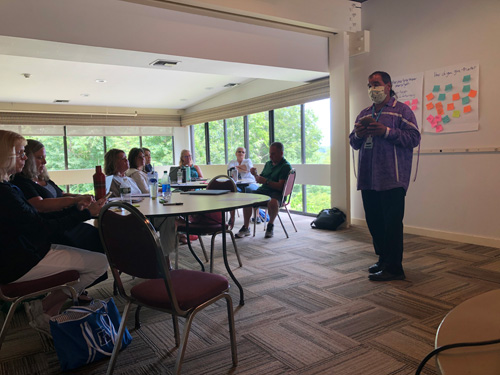Grant Spotlight | November 23, 2021
Share ThisNovember 23, 2021
“It’s crucial to acknowledge our own unconscious biases as public historians and really practice active listening, including as many diverse voices and perspectives in the conversation as possible!” —Hilary Goodnow, Director of Education and Community Outreach, Plimoth Patuxet Museums

As society takes steps to acknowledge the unfortunate events of our past and build a more inclusive future—such as marking Indigenous Peoples’ Day, observing Native American Heritage Month during November each year, and lifting up the stories of Native people and Tribes across the U.S.—Plimoth Patuxet Museums found themselves well-suited to educate the public and stop the perpetuation of myths and stereotypes surrounding the first Thanksgiving.
While we commemorate and reflect on the 400th anniversary of the Mayflower’s arrival, as well as the 400th anniversary of the 1621 harvest feast now known as the first Thanksgiving, there is an increased demand for more information about this historic event. But many resources contain inaccurate depictions of the relationship between the Wampanoag people, who had already lived in the area now known as Plymouth, Massachusetts, for more than 10,000 years, and the Pilgrims. Crucial details of the story are usually excluded, but thanks in part to funding from the Institute of Museum and Library Services (IMLS), Plimoth Patuxet is bringing them to light.
“The Unearthed Voices from Plimoth at the Patuxet” project meets an ongoing need to expand on the role of Indigenous culture in the context of early American history for students, teachers, families, and the general public,” said Hilary Goodnow, Director of Education and Community Outreach at Plimoth Patuxet. “It highlights how intertwined the Wampanoag and colonial cultures were and how it is impossible to tell the story of one culture without including the other.”
Educators are also seeking more information about how to present this topic in an inclusive, equitable, culturally sensitive, and more historically accurate manner, and the museum’s resources help tell the nuanced Wampanoag-Pilgrim story from multiple perspectives.
Guiding the Conversation Through Gaming

The project includes an in-school educational program designed and tested by teachers in collaboration with the Mashpee Wampanoag Tribe. Complementing that is a suite of digital resources, including a web-based interactive game called “You Are the Historian: Investigating the First Thanksgiving,” which provides teachers across the country with access to materials developed for the in-school educational program.
Goodnow, project director of Unearthed Voices, wrote and edited the game script with input from museum staff, Indigenous Studies scholars, Wampanoag and other Indigenous thought leaders, and K-12 advisors.
“It’s been great learning from so many seasoned classroom Indigenous and non-Native educators who are passionate about our shared efforts to encourage nuanced, empathetic, and primary source-driven insights into the past,” Goodnow said.
Created in conjunction with an Indigenous Advisory Committee and a multimedia production studio, the game explores Wampanoag life prior to European settlement and the year leading up to the first Thanksgiving. It investigates the interactions between the Wampanoag people and the Pilgrims by engaging players with archaeological artifacts from the museum’s collections, primary source documents, and oral stories that have been passed from generation to generation.
The game directly responds to the increased demand for nuanced and fact-based history told from both an Indigenous and colonial perspective. The museum has created an experience that will transport visitors to the pre-European homeland of the Wampanoag and immerse them in a story of cultural change and persistence that spans 12,000 years.
“Students will be able to further explore the rich historical context of the Indigenous and colonial experiences during their earliest encounters through magical time travel, an anonymous tipster, mysterious riddles, historic artifacts and archives, and old-fashioned smart thinking,” Goodnow said.
“You Are the Historian” is live and ready to be played at www.plimoth.org.
A History of Collaboration

For half a century, Plimoth Patuxet has illustrated history through a balanced and equitable approach. The museum and its Indigenous staff have worked directly with local Tribal communities and scholars to research and incorporate the Indigenous perspective into the living history exhibits.
As a result, the museum’s Wampanoag Homesite exhibit tells a culturally inclusive story of the region’s Indigenous people and engages guests through experimental archaeology, oral history, material culture, and foodways programs. This hands-on approach allows the museum to reach hundreds of thousands of visitors each year, from elementary students to lifelong learners. Due to this intensive work, and through collaborations with leading scholars, Plimoth Patuxet is seen as the leader in telling the history of the Wampanoag and Pilgrims.
Continuing the Story
Next year, thanks to an additional grant award from IMLS, Plimoth Patuxet will focus on refining their content with an Indigenous Educators focus group and piloting new educational materials and teacher resources to accompany the “You Are the Historian” game.
“We will collect evaluation and survey feedback from teachers across the greater New England region and be offering more teacher professional development opportunities to get additional primary sources into teachers’ hands so they can incorporate these Indigenous and colonial voices into their unit, curricular, or lesson plans,” Goodnow said.
In 2022, Plimoth Patuxet also celebrates its 75th anniversary, and 2023 will be the 50th anniversary of the Wampanoag Indigenous Program.
About the Project
Grant Project Name: Unearthed Voices from Plimoth at Patuxet
Grant Log Number: MA-245926-OMS-20
Year Awarded: 2020
Recipient: Plimoth Patuxet Museums
Project Contact:
Hilary Goodnow
Director of Education and Community Outreach
Plimoth Patuxet Museums
hgoodnow@plimoth.org
Website: https://plimoth.org/
